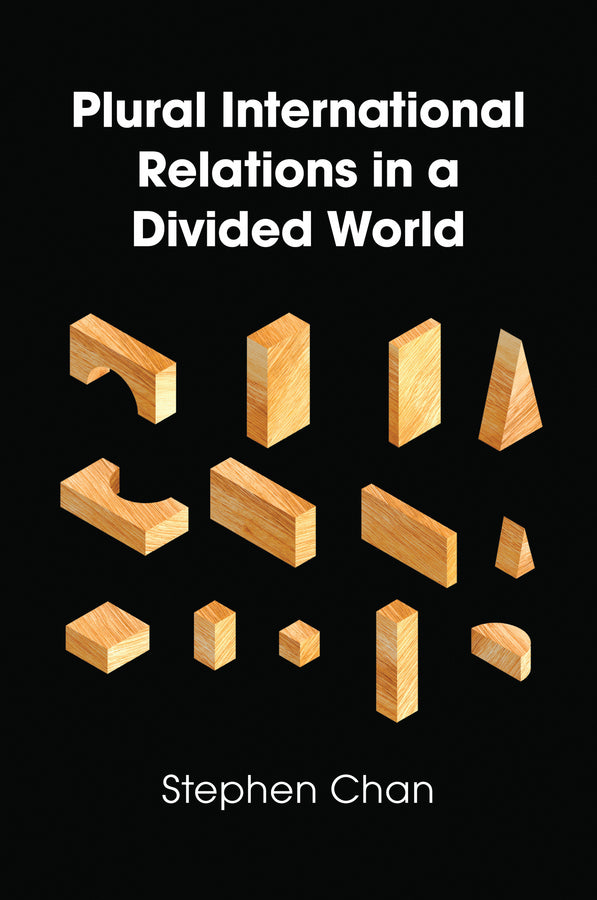Description
Explore the complexities of global dynamics with 'Plural International Relations in a Divided World.' This enlightening book by Stephen Chan delves into the historical and philosophical roots of international differences and discord that permeate our increasingly polarized world. As contemporary issues like fundamentalist violence and the rise of militant Islam reshape the geopolitical landscape, Chan highlights the necessity for a reevaluation of traditional international relations theories. He traces the evolution of the Westphalian system and examines how newly emerged states from regions such as the Middle East, Asia, and Africa grapple with inherent disparities and the quest for a stable international order. Throughout this 240-page publication from John Wiley & Sons, you'll gain insights into the pressing challenges faced by global governance frameworks in the 21st century, including the transformative impacts of groups like the Taliban, Al-Qaeda, and ISIS. With its thought-provoking analysis, this book serves as a vital resource for students and scholars of international relations seeking to navigate the intricacies of modern geopolitical issues. As you ponder the future of global diplomacy and cooperation, Chan urges the critical need for a pluralistic approach to understanding international relations. Get your copy today to engage with ideas that challenge and inspire a new perspective on our divided world. Note: Shipping for this item is free. Please allow up to 6 weeks for delivery. Once your order is placed, it cannot be cancelled. Condition: BRAND NEW, ISBN: 9781509508686, Year: 2017, Publisher: John Wiley & Sons (UK), Pages: 240.
Note: Shipping for this item is free. Please allow up to 6 weeks for delivery. Once your order is placed, it cannot be cancelled.
Condition: BRAND NEW
ISBN: 9781509508686
Year: 2017
Publisher: John Wiley & Sons (UK)
Pages: 240
Description:
The world is troubled and full of misunderstandings. It seems a new world order of fundamentalist violence and meaningless atrocity is upon us, whilst civilised instruments for cooperation and compromise are becoming increasingly ineffective.
In this timely book, Stephen Chan explores the historical and philosophical roots of difference and discord in the international system. He begins with the introduction of the Westphalian system, showing how, throughout the 20th century, new states - from the Middle East, Asia and Africa - entered that system with reservations, preconditions, and great efforts to introduce new forms of concerts and congresses but without seriously challenging the international status-quo.
By contrast, the 21st century has brought turmoil and change in the form of militant Islam - be it the Taleban, Al Qaeda, or ISIS - whose varied roots and fluid emergence have so far prevented the West from being able to understand and combat it. Developing Kissinger's suspicion of Saudi Arabia as an Islamic state in Westphalian dress, Chan argues that what is at stake today is not the development of a new Caliphate or an old radicalism - but the effort to supplant and replace the Westphalian system itself. This is the complex and challenging reality to which a truly modern and persuasively relevant plural international relations must now adapt. Whether it can do so remains to be seen.
Note: Shipping for this item is free. Please allow up to 6 weeks for delivery. Once your order is placed, it cannot be cancelled.
Condition: BRAND NEW
ISBN: 9781509508686
Year: 2017
Publisher: John Wiley & Sons (UK)
Pages: 240
Description:
The world is troubled and full of misunderstandings. It seems a new world order of fundamentalist violence and meaningless atrocity is upon us, whilst civilised instruments for cooperation and compromise are becoming increasingly ineffective.
In this timely book, Stephen Chan explores the historical and philosophical roots of difference and discord in the international system. He begins with the introduction of the Westphalian system, showing how, throughout the 20th century, new states - from the Middle East, Asia and Africa - entered that system with reservations, preconditions, and great efforts to introduce new forms of concerts and congresses but without seriously challenging the international status-quo.
By contrast, the 21st century has brought turmoil and change in the form of militant Islam - be it the Taleban, Al Qaeda, or ISIS - whose varied roots and fluid emergence have so far prevented the West from being able to understand and combat it. Developing Kissinger's suspicion of Saudi Arabia as an Islamic state in Westphalian dress, Chan argues that what is at stake today is not the development of a new Caliphate or an old radicalism - but the effort to supplant and replace the Westphalian system itself. This is the complex and challenging reality to which a truly modern and persuasively relevant plural international relations must now adapt. Whether it can do so remains to be seen.

